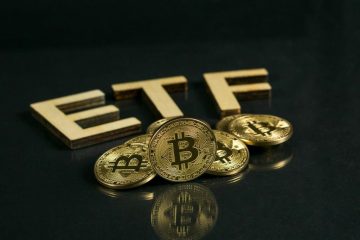Crypto Is Still the Wild West Almost a Year After FTX Collapse

The collapse of crypto exchange FTX wiped out millions of its customers’ crypto holdings and turned its billionaire founder into a pariah now facing criminal fraud charges in New York. But the fall of Sam Bankman-Fried and his Bahamas-based exchange, which at its peak held more than $10 billion in customer deposits, hasn’t fundamentally changed how crypto works or is regulated. The sector is still the Wild West of finance.
Terrorists and money launderers use cryptocurrencies to cover their tracks. Hackers frequently find ways to steal digital coins. Worldwide trading is still concentrated in a huge offshore exchange, Binance, which has been accused of some of the same risky practices as FTX. Although it roiled the crypto world, FTX’s collapse didn’t alter the legal and regulatory landscape. Unlike past crises that spurred U.S. lawmakers into action, this one has legislators divided over how, and even whether, to address crypto markets.
Instead, regulators have pursued a piecemeal enforcement campaign designed to impose Wall Street’s rules on crypto—a move the biggest crypto exchanges, such as Binance, are fighting in court. The upshot is that another FTX could happen—and investors could be the losers again. “Of course it could happen again, because there is nothing to stop it,” said John Reed Stark, a former enforcement official at the Securities and Exchange Commission.
CEO Sam Bankman-Fried and his FTX crypto exchange once saw great fanfare. Granted, some of the challenge with regulating crypto stems from its global nature. The biggest exchanges are offshore, and Americans still find ways to trade on them. Almost 20% of Binance’s customers were in the U.S. in 2020, despite the exchange’s not being eligible to serve traders here, according to regulatory lawsuits.
FTX and Binance both started in Asia and hopped from one country to another to stay ahead of regulatory clampdowns. FTX eventually landed in a crypto haven, the Bahamas, that didn’t effectively regulate it. Binance claims it has no headquarters. Another possible reason FTX hasn’t led to more action? For all the hype around it, crypto is still small—with a global market capitalization of about $1 trillion—compared with mainstream markets and the financial system. So while individual investors are often at risk, the sector hasn’t so far posed a systemic danger.
While bitcoin’s price has risen since last year, venture capitalists have reined in their support since FTX’s downfall. U.S. banks don’t fund crypto, limiting its consumer reach and the knock-on effects of market turmoil. The potential risks to individual investors, though, are behind ongoing efforts by the SEC to bring the sector to heel. Another FTX could happen because crypto’s basic business model is rife with conflicts of interest, SEC Chair Gary Gensler said in an interview.
“There is a lot of interconnectedness, centralization and leverage in the system, and noncompliance,” Gensler said. “It’s a recipe for more investors to get harmed going forward.” FTX was forced into bankruptcy after users learned some of their funds were misused and rushed to pull crypto from the exchange’s digital vault. The stampede revealed a multibillion-dollar shortfall and revelations that Bankman-Fried’s hedge fund, Alameda Research, had siphoned off billions in FTX customer funds for other investments.
Bankman-Fried’s former top lieutenants testified against him last week in court. He has been charged with wire fraud, conspiracy to commit securities fraud, money laundering and other violations. The red flags that played a role in FTX’s demise are still present at other exchanges. Binance, like FTX, has affiliated trading firms that traded with customers on the platform, including on Binance’s American outpost—known as Binance.US—according to the SEC’s lawsuit against the company.
FTX wasn’t the only big ship to sink in 2022. A number of crypto-lending companies grew quickly and imploded just as fast when borrowers defaulted on loans or they were taken down by their deep connections to FTX. Binance also stores its customers’ assets and, according to the SEC, kept them in an account controlled by one of its affiliated trading firms.
Smart and accessible crypto market analysis for investors. On Wall Street, brokerages that safeguard investors’ assets must follow rules requiring that they keep them separate from the firm’s own.
Binance says it shouldn’t be confused with FTX. The exchange can account for all user assets and the company can meet withdrawal requests, it said in a statement. The company doesn’t have any debt and has a diverse base of trading firms that support 24/7 trading, it said.
The SEC and other U.S. regulators have filed lawsuits asking American courts to impose federal investor protections on Binance and the biggest American-based exchange, Coinbase. The companies are fighting the complaints in court, arguing the SEC doesn’t have jurisdiction over their activity. But litigation is a slow-moving way to impose change on a market. Another problem: The SEC could lose in court. So far, it has a good record in crypto litigation, but a federal judge in July dismissed part of the agency’s lawsuit over one of the biggest cryptocurrencies, a token known as XRP.
Meanwhile, Congress is divided over what, if anything, to do. Republicans tend to favor legislation that would impose customized rules on crypto. But top Democrats are content letting the SEC and other regulators police the system, said Ian Katz, a policy analyst at Capital Alpha Partners. “If they really felt like there were more Main Street mom-and-pop types getting hurt, there would be more of a drive to get something done,” Katz said.
Market participants who think another FTX won’t happen say the investing landscape is different today and that crypto has improved its own practices. FTX thrived during a period of a few years when bitcoin and other asset prices were climbing and small traders could gamble with contracts that paid off 100-to-1 as long as prices rose. They also say U.S. investors are more reliant on American exchanges such as Coinbase and Kraken, whose risk-management practices and compliance teams are much better than FTX’s.
“What FTX did has been incredibly damaging to the industry,” said Kristin Smith, chief executive of the Blockchain Association, a group that lobbies for crypto in the U.S. “None of the good actors in this space want to see that happen again.”







